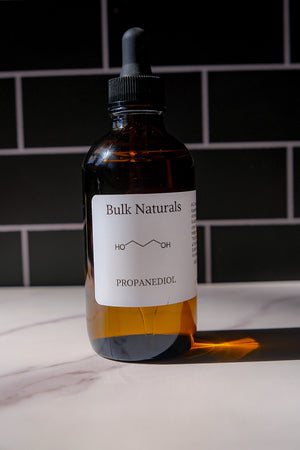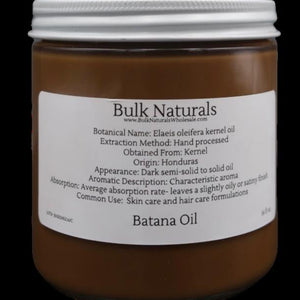Are you using the best oils for your soap?
Carrier oils are the unsung heroes of every soap formulation. They influence everything from the lather and cleansing properties to the conditioning feel and shelf life of the final product. For both beginner and experienced soap makers, choosing the right carrier oils is the foundation of crafting high-quality, skin-loving bars of soap.
At Bulk Naturals Wholesale, we supply pure, cold-pressed, and unrefined oils to support your soap formulations. In this guide, we’ll explore five standout oils every soap maker should try: Sweet Almond, Castor, Olive, Coconut, and Avocado—each selected for its specific role in balancing cleansing, hardness, and conditioning.
1. Sweet Almond Oil – The Gentle Nourisher
Sweet almond oil is a light, easily absorbed emollient that’s beloved in both soap and skincare for its luxurious texture and nutrient profile. Rich in oleic and linoleic fatty acids, this oil delivers deep hydration while maintaining a lightweight feel. It’s especially well-suited for soaps targeting dry, irritated, or sensitive skin.
In cold process soap, sweet almond oil imparts a soft, moisturizing quality to the bar. It also contributes to a stable, gentle lather and leaves a silky finish on the skin.
Skin Benefits:
-
Deeply moisturizing and calming
-
Softens skin without clogging pores
-
Reduces flakiness and irritation
Soap Formulation Benefits:
-
Adds silkiness and skin glide
-
Works well in sensitive-skin bars and baby soaps
Usage Tip:
Use sweet almond oil at 5–20% in your oil phase. It’s excellent in combination with harder oils like coconut and conditioning oils like olive.
Use sweet almond oil at 5–20% in your oil phase. It’s excellent in combination with harder oils like coconut and conditioning oils like olive.
2. Castor Oil – The Lather Booster
Castor oil is unique among carrier oils due to its high ricinoleic acid content, which makes it an excellent lather enhancer. It’s also a humectant, drawing moisture to the skin—a property that adds long-lasting hydration to your soap bars.
Though used in small amounts, castor oil plays a big role in stabilizing and increasing the richness of the lather, particularly in bar soaps that might otherwise feel flat or bubbly but not creamy.
Skin Benefits:
-
Locks in moisture and hydrates skin
-
Has anti-inflammatory properties
-
Soothes minor skin irritations
Soap Formulation Benefits:
-
Thickens and stabilizes lather
-
Adds creamy bubbles to bar soaps
Usage Tip:
Incorporate castor oil at 5–10%. Using too much can soften your bars excessively, but at the right percentage, it’s a lather game-changer.
Incorporate castor oil at 5–10%. Using too much can soften your bars excessively, but at the right percentage, it’s a lather game-changer.
3. Olive Oil – The Classic Conditioner
Used for centuries in soap making (think: Castile soap), olive oil is mild, nourishing, and rich in skin-supportive antioxidants and vitamins. It creates a gentle, low-foaming lather and contributes to a hard bar over time, especially with a longer cure.
Because of its high oleic acid content, olive oil is great for mature, dry, or sensitive skin. It’s slow to trace in cold process soap, making it ideal for complex designs.
Skin Benefits:
-
Gently cleanses without stripping
-
Nourishes with Vitamin E and polyphenols
-
Supports skin barrier function
Soap Formulation Benefits:
-
Contributes to hardness and conditioning
-
Mild and well-tolerated by most skin types
Usage Tip:
Use anywhere from 20% to 100% of your total oil weight. Pure Castile soaps are made from 100% olive oil, though blends give better lather.
Use anywhere from 20% to 100% of your total oil weight. Pure Castile soaps are made from 100% olive oil, though blends give better lather.
4. Coconut Oil – The Cleansing Powerhouse
Coconut oil is famous in soap making for its incredible cleansing power and fluffy, bubbly lather. It's rich in lauric acid, which gives soap its solid structure and excellent cleansing ability. However, it's important to balance coconut oil with gentler oils to avoid drying the skin.
Skin Benefits:
-
Effectively cleanses and removes excess oils
-
Contains antibacterial and antifungal properties
-
May support skin repair and hydration (in small amounts)
Soap Formulation Benefits:
-
Creates a hard, long-lasting bar
-
Adds voluminous, bubbly lather
Usage Tip:
Keep coconut oil between 15–30% to avoid overly cleansing or drying effects. Use lower amounts for facial bars and higher for body soaps.
Keep coconut oil between 15–30% to avoid overly cleansing or drying effects. Use lower amounts for facial bars and higher for body soaps.
5. Avocado Oil – The Skin Rejuvenator
Avocado oil is a rich, green-hued oil loaded with vitamins A, D, and E as well as skin-nourishing sterols and oleic acid. It brings a creamy lather and emollient benefits to soap, making it ideal for conditioning bars intended for dry or mature skin.
Skin Benefits:
-
Supports skin regeneration and elasticity
-
Calms irritation and soothes eczema-prone skin
-
Delivers deep hydration without heaviness
Soap Formulation Benefits:
-
Adds moisturizing and skin-nourishing properties
-
Contributes to creamy, conditioning lather
Usage Tip:
Use at 5–15% in your oil blend to enhance richness without compromising the bar’s structure.
Use at 5–15% in your oil blend to enhance richness without compromising the bar’s structure.
Final Thoughts
Each of these five carrier oils offers a unique set of properties that contribute to the performance, feel, and quality of handmade soap. By understanding their individual roles—whether for lathering, cleansing, or conditioning—soap makers can fine-tune their formulas for different skin types and product goals.
Ready to Elevate Your Soapmaking?
These carrier oils are just the beginning. Whether you're crafting nourishing bars, luxurious lathers, or specialty blends, the right oil makes all the difference.
Explore our full collection of premium carrier oils at Bulk Naturals Wholesale—handpicked for makers who demand quality, consistency, and performance.







Leave a comment